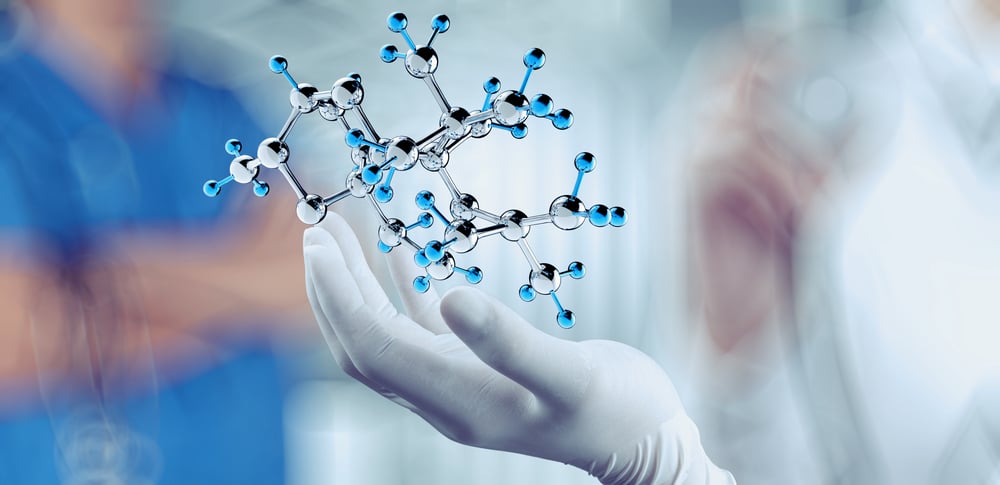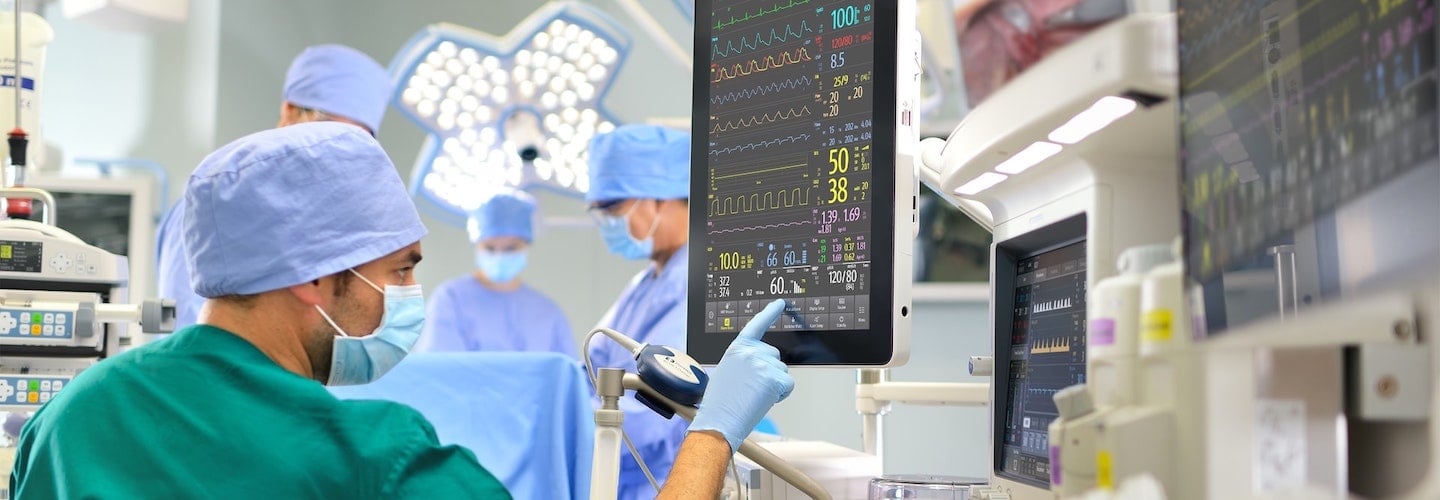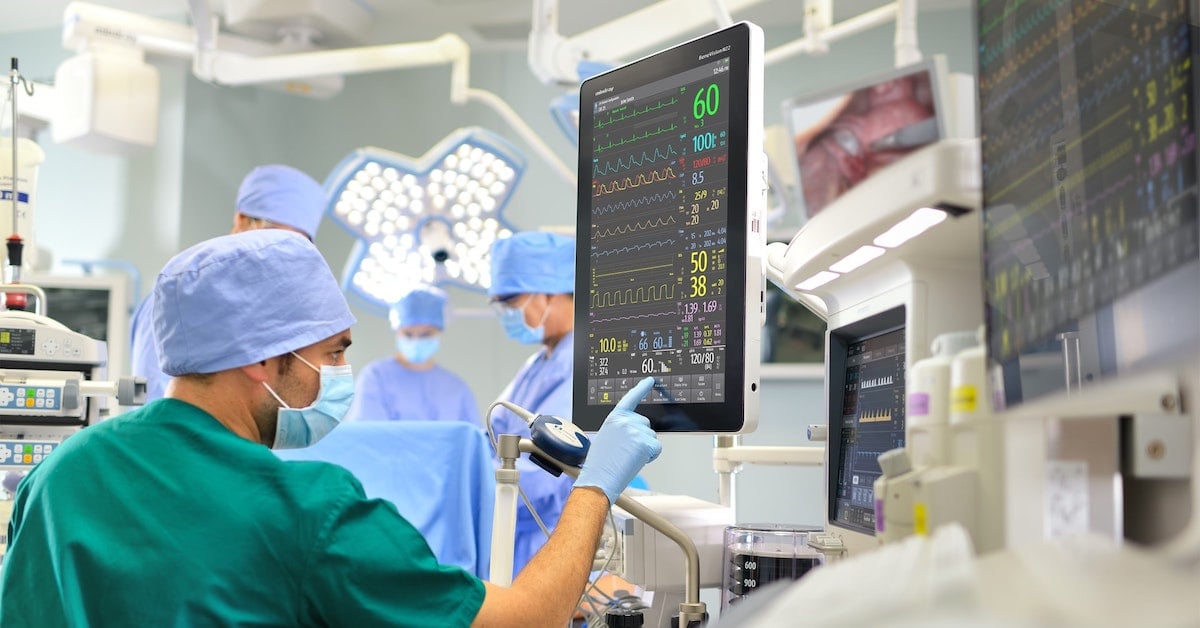What Will the Life Sciences Industry Look Like in 2030?

The life sciences industry is at the heart of improving our health, agriculture, and environment, and it's thriving. Valued at over $2 trillion globally, it's projected to grow significantly by 2025, driven by an aging global population with an increasing need for healthcare, and the rapid advancement of new technologies.
The sector has shown its strength too, particularly when faced with challenges of the COVID-19 pandemic. As we look to the future, the life sciences sector is set to continue evolving, playing a key role in how healthcare develops.
Here’s my perspective on how the industry might shift in the coming years.
Current state of the life sciences industry
These are exciting times in the life sciences industry, thanks largely to digital acceleration. Advances in AI, machine learning, and genomics are leading to significant progress in drug discovery and personalized medicine. Plus, digital health technologies like wearables and telemedicine are transforming healthcare. Let's dive deeper into these developments.
Recent trends and developments in the industry
Increasing use of AI and ML
Artificial intelligence and machine learning are the driving forces of the life sciences industry. They're helping to make medical devices more accurate, efficient, and personalized.
AI is also incredibly good at finding patterns in huge sets of data, which is vital for things like researching diseases, discovering new drugs, and predicting health issues before they happen. It's proving helpful in business operations, too, with early adopters reaping productivity benefits.
But as with other areas of digital acceleration, there are big legal questions to tackle around intellectual property and data privacy. It's important to solve these issues to maintain ethical standards and fairness.
Rise of precision medicine
In the past, doctors used general criteria like age and sex to determine treatment plans for patients. Now, with the help of genomics and AI, it's possible to analyze vast amounts of health data to find patterns and predict the most effective treatments for individual patients.
Known as precision medicine, this has been particularly effective in managing chronic diseases such as cancer and diabetes, often resulting in fewer side effects. As it leads to better outcomes and greater efficiency, you can expect precision medicine to become a cornerstone of healthcare by 2030.
Growing importance of digital health technologies
As we’ve seen, tech has begun to reshape the life sciences industry. This transformation gained real momentum during the pandemic when life sciences and biotech companies were forced to quickly embrace technologies like cloud computing and AI. This enabled remote work, accelerated scientific breakthroughs, and improved manufacturing efficiency.
The growing use of wearables and healthcare apps is another example of how tech is changing the landscape, especially in patient care. These tools can detect health issues early, offer tailored health advice, improve general well-being and help manage chronic conditions.
Focus on patient-centric care
Wearables and smart tech are playing a big role in helping the life sciences industry adopt a more patient-centric approach, too.
These technologies provide doctors with valuable data, enabling them to make more informed decisions, monitor a patient’s recovery remotely, and provide more tailored care. Patients, meanwhile, gain from being able to closely track their health and enjoy more convenient online appointments.
Innovation in research is also steering life sciences down a more patient-centric path.
Deloitte figures show that currently, over 435,000 clinical trials are underway globally, and these use more than two million health tech devices. This level of extensive research will be crucial in developing more effective, personalized treatments, promising a future of healthcare that's more attuned to the unique needs of each patient.
What to expect in the life sciences industry in 2030
I've already discussed the importance of AI and digital health tech along with the shift towards patient-centric care and personalized medicine. But there's more on the horizon.
Gene therapy
One area that's ripe for innovation is gene editing. A technology called CRISPR — a method for precisely altering DNA — is a key development in this field. CRISPR stands for Clustered Regularly Interspaced Short Palindromic Repeats and could transform everything from treating genetic diseases to how we grow food.
Also, with thousands of clinical trials happening worldwide, we're seeing a boom in therapies that work at the cell and gene level. These advances, especially with AI in cancer care, are paving the way for treatments that are highly specific to each person's health needs.
Biotechnology innovations
A growing number of biotech companies are looking for ways to use biological processes, organisms, or systems — in other words, living things — to develop technologies and products that can improve our lives.
These are growing in importance because they offer solutions to serious global challenges — diseases, food shortages and climate change. As our understanding of biological systems improves, biotechnology companies can use this knowledge to make more effective medicines, boost farming, and take better care of our planet. I think this sounds very promising.
Drug discovery and development
Tech is completely changing how we discover and develop new drugs. As I've already outlined, AI and machine learning can quickly analyze huge amounts of data to find patterns that humans might miss. This helps scientists understand diseases better and identify potential new medicines faster.
Then there's high-throughput screening, a process where robots test thousands of different substances at once to see if any could be a new drug.
Together, these technologies speed up the process of finding new medicines, making them less expensive and more efficient, which is great news for getting new treatments to people faster.
Challenges and opportunities for the life sciences industry
Let’s take a quick look at potential problems and opportunities that lie ahead of the life sciences industry, starting with challenges – I picked the most pressing ones.
Pricing changes under the Inflation Reduction Act (IRA) in the United States
Arguably, the standout piece of legislation introduced under Joe Biden's presidency is the Inflation Reduction Act(IRA), a law aimed at reducing inflation, particularly through climate change, healthcare and drug pricing initiatives. It presents a number of challenges to the life sciences industry and companies in biotechnology.
When it comes to drug pricing, the IRA allows Medicare (the U.S. government health insurance program) greater powers of negotiation, potentially lowering costs for patients but impacting company revenues. The act also requires companies to pay back money if drug prices increase faster than inflation. These changes could make life sciences and biotechnology companies think differently about how much they charge for drugs and how they invest in creating new ones.
Lack of awareness and trust in organizations impeding trial diversity
To have fair and effective medical treatments, it's important for clinical trials to include people from all backgrounds. The problem is there's often a lack of awareness about these trials in minority groups, or a lack of trust towards the organizations running them.
To fix this, pharma and biotech companies need to share clear and trustworthy information via sources that people in under-represented communities believe in. Also, it's important to get rid of bias in healthcare systems. Doing this will make companies in biotechnology better at providing equal services to everyone, hiring and keeping talented staff, and improving their overall reputation.
Handling legal implications and adherence to regulations
As I've mentioned, digital acceleration in life sciences comes with plenty of legal hurdles. By 2030, there will be increased legal oversight to ensure compliance and ethical use of tech.
For instance, when AI is used in precision medicine and personalized treatments, it must follow strict privacy laws like HIPAA and GDPR. Also, organizations like the US FDA and the European Medicines Agency are paying close attention to AI's use in medical imaging.
Dealing with ethical dilemmas
Ethical challenges with things like gene editing, genetic testing, and data privacy are also big concerns in the life sciences industry.
Technologies such as CRISPR-Cas9 raise questions about creating designer babies and changing genes in ways that might affect future generations. There are worries about safety, fairness, and long-term impacts.
When it comes to genetic testing services, there are privacy issues like potential misuse of genetic data.
To handle these ethical issues, it's important to have robust ethical rules. Everyone involved needs to work together to ensure that their actions are good for society as a whole.
Opportunities for growth and innovation in the next decade
What can we expect to happen in the life sciences industry in the next ten years? Let’s see.
Designing solutions for ‘real-world’ medicine
In the coming years, there's a significant opportunity to develop AI solutions that are finely tuned for practical use in medicine.
Mihaela van der Schaar, a leading figure in AI research at Cambridge University, wrote in a Guardian article last year that AI in healthcare has largely been underutilized.
Instead of simply being used for diagnostics or finding, these tools should support the daily decisions healthcare workers make. Her vision is for AI to complement human expertise in healthcare, rather than replace it, focusing on treatments that are specifically designed for each patient. With AI used in this practical, supportive way, the next decade could bring big improvements to healthcare, making it more personalized and effective.
Integrating end-to-end data and analytics
According to a McKinsey report, healthcare data reached a staggering 2 trillion gigabytes in 2022. This data, by itself, isn’t much use. However, with the help of advanced analytics and AI, departments like medical affairs can now use this data effectively. They can find out which doctors or nurses need more training, for example, and how this training impacts patient care.
To make the most of this data revolution, healthcare organizations will need to embrace a new way of making decisions based on data, which is a big change from how things were done before.
Treatment and drug repurposing
As well as helping us discover new drugs, AI is showing us how existing drugs can be used to treat different health problems. Known as drug repurposing, this is gaining traction among companies in biotechnology. AI can analyze data to predict how a body might react to a drug, which could lead to new uses for old drugs. This could result in new treatments for hard-to-treat conditions. AI also helps researchers globally share data and manage intellectual property, making this collaboration easier.
Life sciences: what lies ahead?
Heading into 2030, the life sciences industry is on the brink of exciting changes. Innovations in AI, genomics, and digital health are shaping a future of more effective, personalized healthcare.
However, while leading biotechnology companies have the resources to stay ahead of the curve, most healthcare systems around the world will have a harder time adapting.
The real challenge lies in making sure everyone benefits from these advancements, which is why funding, privacy, and ethical practices are such critical issues. Stronger collaboration between governments, healthcare providers, and biotechnology companies is the key to a bright future in healthcare.






